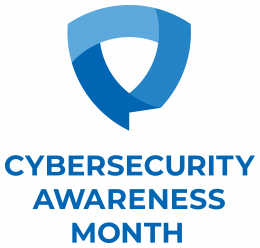Technically Speaking is a new video series from the Division of Information Technology. The video series will update the K-State Community on new tools, projects, and services available through IT.

In this episode of Technically Speaking, learn about K-State’s Security Intelligence and Operations Center (SIOC). Josh McCune, the Director of the SIOC, will explain what steps are being taken to protect K-State from cybersecurity threats.
The Security Intelligence and Operations Center episode of Technically Speaking is now available for viewing.
 The Division of Information Technology (IT) has noticed increased phone calls coming from unusual country codes across campus. Some of the country codes are fake. These callers have some knowledge of K-State and our operations, and they are seeking additional information. The cybersecurity team feels this is potentially reconnaissance for a social engineering-type attack. Therefore, we ask that you please be aware of this activity and ask everyone to pay close attention to any calls and report any suspicious activity to
The Division of Information Technology (IT) has noticed increased phone calls coming from unusual country codes across campus. Some of the country codes are fake. These callers have some knowledge of K-State and our operations, and they are seeking additional information. The cybersecurity team feels this is potentially reconnaissance for a social engineering-type attack. Therefore, we ask that you please be aware of this activity and ask everyone to pay close attention to any calls and report any suspicious activity to  A new phishing scam is currently targeting colleges and universities. The scam email notifies students, faculty, and staff that federal government funds are available and asks the recipient to apply for the grant money and provide their personal data. Do not click the link; this is a scam.
A new phishing scam is currently targeting colleges and universities. The scam email notifies students, faculty, and staff that federal government funds are available and asks the recipient to apply for the grant money and provide their personal data. Do not click the link; this is a scam. Cyber extortion is an online crime in which hackers hold your data, website, computer systems, and other sensitive information hostages until you meet their demands for payment. It often takes the form of ransomware.
Cyber extortion is an online crime in which hackers hold your data, website, computer systems, and other sensitive information hostages until you meet their demands for payment. It often takes the form of ransomware. Bad actors take advantage of natural disasters and severe weather at a time when people may be especially vulnerable. Hurricane Ida is giving scammers another path for taking advantage of people during a crisis. One way they do this is by posing as representatives of charities seeking donations for disaster relief. Scammers are looking to trick you into handing them your money or financial information.
Bad actors take advantage of natural disasters and severe weather at a time when people may be especially vulnerable. Hurricane Ida is giving scammers another path for taking advantage of people during a crisis. One way they do this is by posing as representatives of charities seeking donations for disaster relief. Scammers are looking to trick you into handing them your money or financial information.